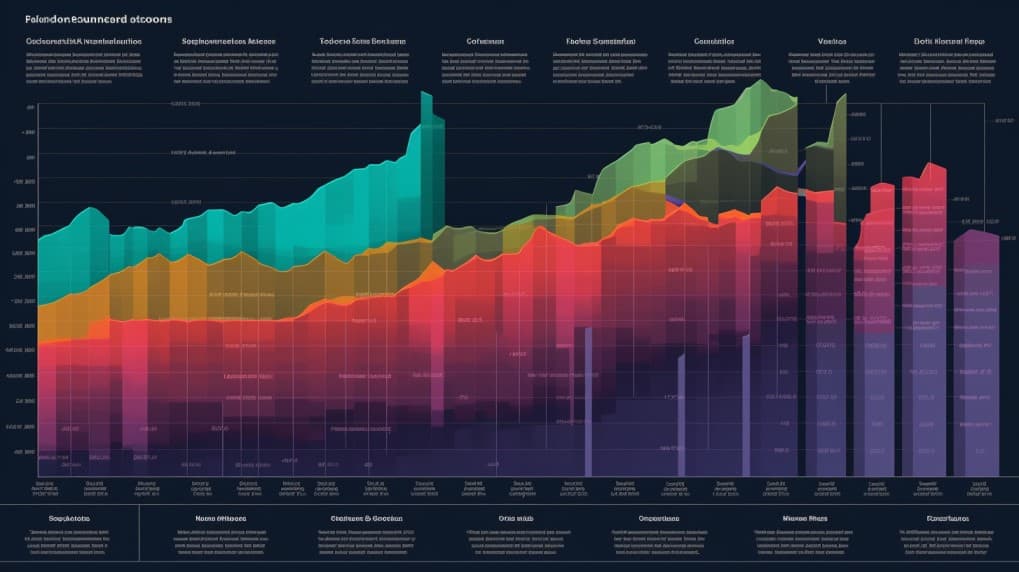
DJP VS GSG: Exposure and Performance
Exchange-Traded Funds (ETFs) have become a fundamental tool for investors, offering diversified exposure to various sectors and asset classes. In this article, we will conduct an in-depth comparison between two prominent ETFs: DJP (iPath Bloomberg Commodity Index Total Return ETN) and GSG (iShares S&P GSCI Commodity-Indexed Trust). We'll explore key aspects such as ETF tickers, full names, issuers, sectors, top holdings, capitalization, strategy, tracking, and exposure.
DJP VS GSG: Overview
DJP and GSG are two ETFs that cater to investors interested in commodity exposure. However, they employ different strategies to achieve this goal. DJP is structured as an Exchange-Traded Note (ETN) and tracks the Bloomberg Commodity Index. In contrast, GSG is an ETF that follows the S&P GSCI Commodity Index. These distinctions in structure and index tracking result in variations in performance and risk profiles, which we will delve into further.
DJP VS GSG: ETF Tickers and Full Names
Understanding the tickers and full names of ETFs is crucial for investors looking to make informed decisions. DJP's ticker symbol stands for "iPath Bloomberg Commodity Index Total Return ETN," while GSG's ticker symbol represents "iShares S&P GSCI Commodity-Indexed Trust." Familiarizing oneself with these identifiers can help investors easily identify and trade these ETFs in the financial markets.
 DJP overlap DJP VS GSG
DJP overlap DJP VS GSG
DJP VS GSG: Issuers and Capitalization
The issuers and capitalization of ETFs play a significant role in assessing their credibility and popularity among investors. DJP is issued by Barclays Bank PLC, a renowned financial institution, and boasts a substantial asset under management (AUM). On the other hand, GSG is issued by BlackRock, Inc., one of the largest asset management firms globally, with its own substantial AUM. Investors often consider the reputation and financial stability of issuers when evaluating an ETF.
DJP VS GSG: Sectors and Top Holdings
DJP and GSG provide exposure to a wide range of commodities, including energy, agriculture, metals, and more. Understanding the sectors and top holdings within these ETFs is vital for investors seeking specific commodity exposure. DJP's holdings include futures contracts on various commodities, while GSG primarily holds futures contracts on energy and agricultural commodities. Examining the sectors and top holdings can help investors align their investment strategies with their commodity preferences.
DJP VS GSG: Strategy and Tracking
Both DJP and GSG employ distinct strategies to track commodity performance. DJP utilizes an ETN structure, which means investors are exposed to the credit risk of the issuer, Barclays Bank PLC. GSG, as an ETF, tracks the performance of its underlying index, the S&P GSCI Commodity Index, by holding futures contracts on the index's commodities. Understanding these strategies is crucial for investors, as they can affect the ETF's returns and risks.
DJP VS GSG: Exposure and Performance
Investors often consider the exposure and historical performance of ETFs when making investment decisions. DJP provides exposure to a broad basket of commodities, offering diversification benefits. GSG, on the other hand, focuses on a narrower subset of commodities, potentially leading to higher volatility. Examining past performance and comparing it to commodity benchmarks can assist investors in assessing an ETF's historical returns and risk-adjusted performance.
Conclusion
DJP and GSG are distinctive ETFs that cater to investors seeking exposure to commodities. While DJP tracks the Bloomberg Commodity Index through an ETN structure and is issued by Barclays Bank PLC, GSG follows the S&P GSCI Commodity Index as an ETF issued by BlackRock, Inc. Investors should carefully evaluate their investment goals, risk tolerance, and commodity preferences when choosing between these ETFs.
For those looking to gain deeper insights into ETFs, including their holdings, correlations, overlaps, and other valuable information, consider using ETF Insider. This user-friendly app provides comprehensive details on various financial instruments to assist investors in making informed decisions.
Disclaimer: This article does not provide any investment advisory services. It is essential to conduct thorough research and consult with a financial advisor before making any investment decisions.
DJP ETF issuer
DJP ETF official page
DJP quote and analysis
Discover the top holdings, correlations, and overlaps of ETFs using our visualization tool.
Our app allows you to build and track your portfolio.
To learn more about the DJP iPath Bloomberg Commodity Index Total Return ETN, access our dedicated page now.